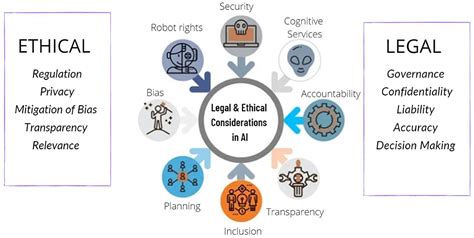Ensuring Ethical Practices in AI-Powered Financial Services
Providing ethical practices with financial services AI
The constantly increasing artificial intelligence (AI) in financial services has made many benefits, including improved efficiency, precision and comfort of customers. However, as technology you advance, as well as complexity, ensuring that these systems work ethically and with integrity. The dependence of the financial industry on their financial products has created new challenges and the ability of companies to create a stable ethical framework.
Ethics of objective financial services
AI is increasingly used in different aspects of the financial industry, including:
1
Risk management : AI systems can analyze a huge amount of data to identify potential risks, such as credit assessment or portfolio management.
- Tradition and investments : AI algorithms can make precision transactions, but can also make mistakes that could cause customers to cause financial losses.
3
Customer service : Chat and virtual assistants can provide assistance around the clock, but their answers must be empathetic and accurate.
- Legislative compliance : AI systems must follow rules such as money laundering (AML) and your customer (KYC).
Challenges to ensure ethical practice
Despite the benefits of financial services that have been with AI, there are several problems with which companies need to take care to ensure that they are ethical:
1
bias and discrimination : AI systems can capture existing prejudices if trained in data sets with discriminatory patterns.
- Lack of transparency : Complex users’ algorithms can make it difficult to understand how their decisions were made.
3
Data security : Providing sensitive financial data from unauthorized access or improper use.
- Human supervision : The systems AI must be developed at the same time as human decision producers, rather than based only on automatic processes.
Protection of AI ethical financial services
Provide the ethical and responsible development of financial services from AI:
1
Create a clear policy and ethical procedures : Companies must be a comprehensive ethical framework that describes their responsibilities and guidelines for the functioning of the AI system.
- Do audiences and periodic tests : Independent audits and testing can help determine possible abnormalities, errors or vulnerabilities in AI systems.
3
Enter people’s supervision : Developing AI systems, at the same time as people’s decision -decision -making will improve responsibility and reduce the risk of prejudice.
- Make sure data security
: Enter stable data protection measures to protect sensitive financial information.
- To promote transparency and explanations

: Developing a clear explanation of decisions can help create users trust.
Regulatory frames
The development and implementation of the rules is essential to ensure that the financial services that have managed to be ethical and responsible:
- Financial Industry Authority (Finra) : Finra has established guidelines for the use of artificial intelligence in trade and investments.
- The Securities and Stock Exchange Commission (sec) : SEC has issued instructions on the use of financial markets, including risk management and rules.
3
General Data Protection Regulation (GDPR) : GDPR emphasizes the importance of data protection in all sectors, including financial services.
Conclusion
As you continue to convert the financial sector, companies prioritize ethics and responsibility when they develop and place these systems.
